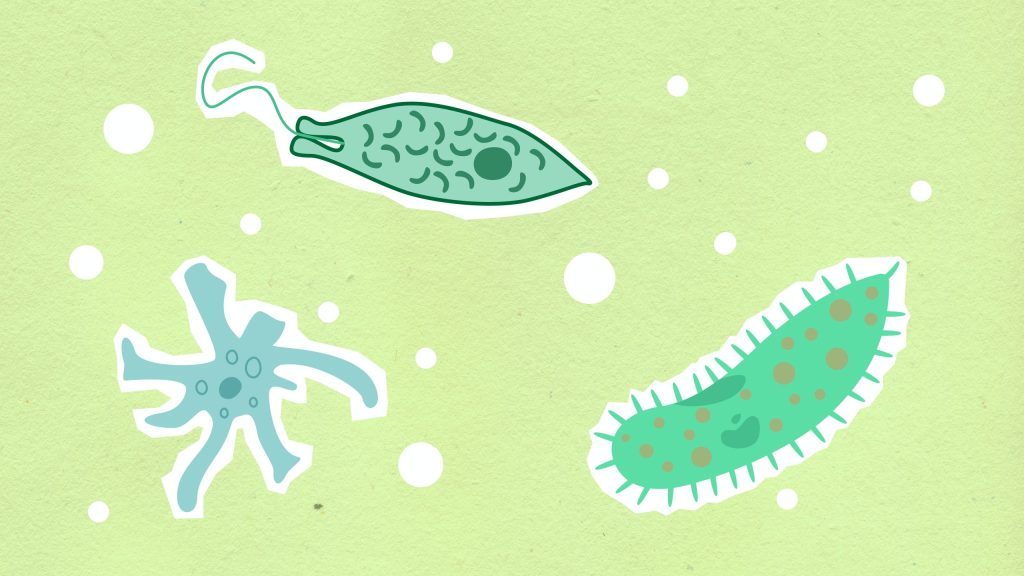L’initiative Microbes pour tous visant à vulgariser la microbiologie aux élèves du secondaire (12-17 ans) est en cours de développement par un groupe de l’Université Laval et a été présentée lors du congrès de l’Association pour l’enseignement de la science et de la technologie au Québec (AESTQ), le 21 octobre dernier.
C’est le professeur Steve Charrette, du Département de biochimie, de microbiologie et de bio-informatique de l’Université Laval, qui est à l’origine du projet Microbes pour tous. Il a été rejoint par d’autres personnes du département depuis le début du projet.
« La microbiologie est l’une des sciences qui a le plus avancé au cours des 15 dernières années; c’est ce qui a permis le développement des vaccins ARN au cœur de la pandémie et il y a en ce moment une multiplication des possibilités microbiologiques », a souligné le professeur Charrette lors de sa conférence. Il rappelle que les microbes sont présents et actifs dans tous les aspects de notre vie. « Alors qu’ils sont perçus comme un problème, ils ont un rôle à jouer dans l’existence de la vie. Il y a de bons microbes… et de moins bons. »
Rejoindre les adolescents
En fait, tout a débuté par quelques activités de vulgarisation de la microbiologie sur le campus de l’Université Laval à Québec. Le cours Microbes et vous (MCB-1909) est accessible à l’ensemble des étudiants de l’institution. Devant la popularité croissante de la formation, le professeur Charrette a voulu rejoindre un public plus large. Il a choisi de s’attarder aux adolescents en premier.
« L’idée est de leur offrir une information qui soit intéressante, pertinente, fiable et vulgarisée. En français, car il y a peu d’information disponible sur le sujet à ce jour dans cette langue. Sur les réseaux sociaux, les jeunes ont accès à toutes sortes de publications scientifiques plus ou moins fiables. Nous voulons faire contrepoids en donnant des outils aux enseignants qui pourront leur transmettre des informations valides », a expliqué le professeur.
Il reconnaît lui-même qu’il n’est pas « un spécialiste des adolescents ». Afin de mieux les rejoindre et de bien servir leurs enseignants, il a établi une collaboration avec l’École en réseau (ÉER) pour tenir une communauté de pratique. Une quinzaine d’enseignants y ont pris part l’an dernier. Celle-ci a permis d’établir des priorités en termes de développement de contenu et de thématiques. Les enseignants souhaitent des protocoles clés en main qui touchent aux domaines de l’alimentation, de la santé et qui mettent en valeur la diversité de microbes.
Un site Web en développement
Une première version du site Web Microbes pour tous est maintenant en ligne. On y retrouve des fiches de présentation de certains microbes (une soixantaine de fiches devraient être ajoutées sous peu), des textes de vulgarisation et des vidéos (ex. le rôle du froid pour combattre les microbes, les probiotiques), ainsi que des protocoles de laboratoire (ex. conservation des aliments, simulation d’une épidémie, effets de la désinfection). Un réseau d’experts qui pourrait répondre aux questions des jeunes et animer des activités en classe est aussi en préparation.
« C’est un projet bénévole et collectif. Nous ne voulions pas attendre que ce soit parfait pour lancer quelque chose. Nous sommes maintenant en mode écoute pour recueillir les commentaires des enseignants et poursuivre le développement du contenu afin de répondre le plus possible à leurs besoins », a conclu Steve Charrette.
Une présentation de l’initiative Microbes pour tous a aussi été faite lors du plus récent colloque de l’ÉER. Il est d’ailleurs possible de revoir l’enregistrement.






